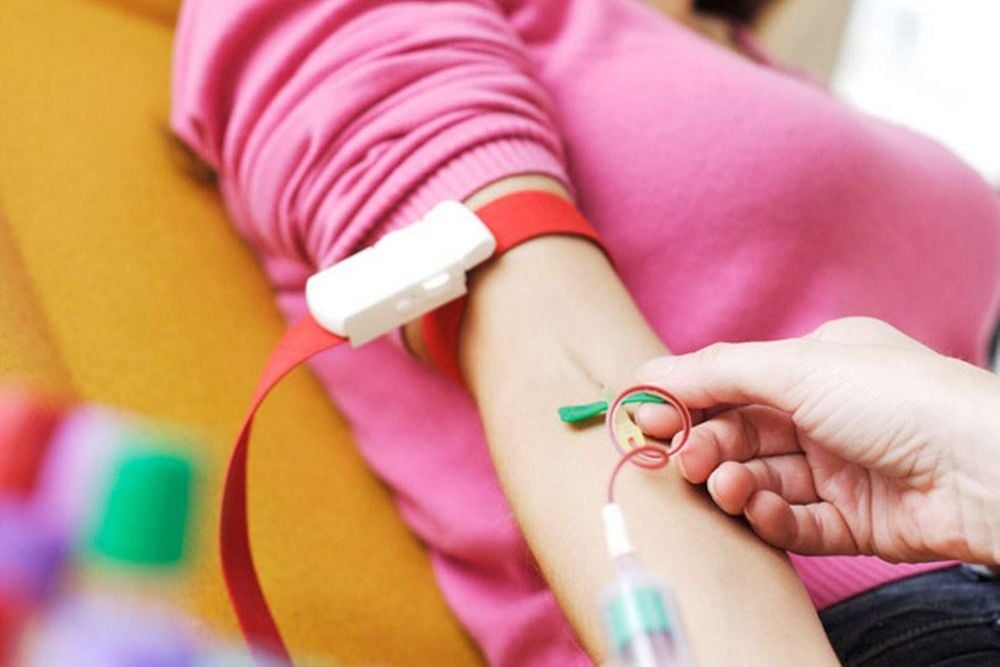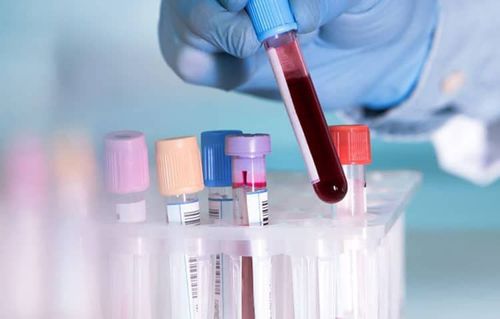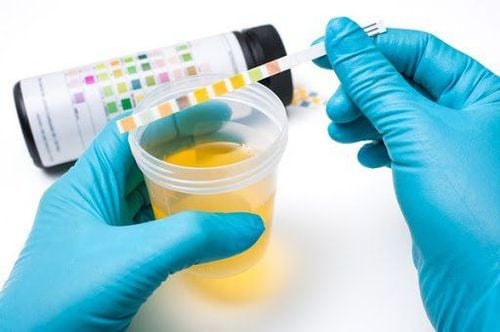This is an automatically translated article.
Gestational diabetes occurs during pregnancy only in women who have not been previously diagnosed with diabetes. Gestational diabetes usually appears in the second trimester of pregnancy and can affect the health of both mother and unborn baby. So doctors usually screen periodically for gestational diabetes at 24 to 28 weeks.1. Symptoms of gestational diabetes
Gestational diabetes is a condition in which a woman's blood sugar levels rise during pregnancy. It occurs in about 10% of pregnant women in the United States each year.
For most women, gestational diabetes doesn't cause any noticeable signs or symptoms that warrant medical attention. Therefore, pregnant women should have regular health check-ups according to the guidelines for pregnant women so that the doctor can assess the risk and screen for gestational diabetes. However, some women may have symptoms such as:
Thirst more than usual Faster hunger and eating more than usual Urinating more than usual There are two types of gestational diabetes:
Type A1 treated through diet and exercise. Type A2 women are treated with insulin or other medications.

Mẹ bầu nhanh đói hơn bình thường
2. Causes of gestational diabetes
When you eat, the pancreas releases insulin, a hormone that helps bring glucose from the blood into the cells and from there the cells will use the sugar for energy.
During pregnancy, your placenta produces hormones that cause glucose to build up and rise in the blood. Normally, the pancreas can produce enough insulin to handle the increased glucose in the blood, but if a woman's body cannot make enough insulin or does not use insulin as it should, blood sugar levels rise and she will have gestational diabetes.
3. Factors that increase the risk of gestational diabetes
Any woman can develop gestational diabetes, but some women with the following factors are at higher risk, including:
Older than 25. Women over 25 are more likely more gestational diabetes. Family or personal health history. The risk of gestational diabetes is increased if the woman has had pre-diabetes symptoms before pregnancy or a close family member, such as a parent or sibling, has had diabetes. type 2 sugar. A woman is also more likely to develop gestational diabetes if she had gestational diabetes in her previous second pregnancy, or the baby weighs more than 4.1 kg, or if the stillbirth is unexplained. Fat. Women are more likely to have gestational diabetes if their body mass index (BMI) is 30 or higher. Race. Black, Hispanic, Indian-American, or Asian women have a higher risk of gestational diabetes than white women.

Béo phì làm tăng nguy cơ mắc tiểu đường thai kỳ
4. How to screen for gestational diabetes
When to screen
Depending on a woman's risk factors for gestational diabetes, your doctor will likely evaluate you when:
At the first prenatal visit: If you have risk factors for gestational diabetes. increased risk of gestational diabetes such as pre-pregnancy body mass index (BMI) >= 30 or having a mother, father, sibling or child who already had diabetes. From week 24 to week 28: If the woman is at moderate risk of gestational diabetes. Routine screening for gestational diabetes
Initial glucose test. You will drink a solution containing glucose. An hour later, your doctor will draw blood and test your blood sugar. Women have normal results if blood glucose levels are below 130 to 140 milligrams per deciliter (mg/dL), or 7.2 to 7.8 millimoles per liter (mmol/L), although these numbers can varies by clinic or laboratory.

Xét nghiệm glucose thai kỳ
The next day, you will drink a solution containing a higher concentration of glucose and your blood sugar will be checked every hour and 3 times. If at least two of the three blood sugar readings are higher than normal, you'll be diagnosed with gestational diabetes.
Women who have been diagnosed with gestational diabetes
The doctor will advise women with gestational diabetes to have regular checkups, especially in the last trimester. During your visits, your doctor will monitor your blood sugar levels. In addition, your doctor may also ask you to monitor your blood sugar daily.
Postpartum blood sugar test
Your doctor will check your blood sugar after giving birth and again after 6 to 12 weeks to make sure your blood sugar level has returned to normal. If the tests are normal, the woman will need to have her diabetes risk assessed at least every three years.

Xét nghiệm đường máu sau sinh con
5. Treatment of gestational diabetes
If you have gestational diabetes, you will need treatment as soon as possible to keep yourself and your baby healthy throughout pregnancy and delivery. Treatments include:
Check blood sugar four or more times in a day Check urine for ketones, which are chemicals that mean your diabetes is not well controlled Implement a regimen healthy diet Exercise Medicine. If diet and exercise aren't enough to control blood sugar, you may need insulin injections to lower your blood sugar. Between 10 and 20 percent of women with gestational diabetes need to use insulin to reach their blood sugar goals. Closely monitor the fetus. Your doctor monitors your baby's growth and development with ultrasounds and other tests at each prenatal visit. If there are still no signs of labor by your due date, your doctor may be able to induce labor because delivering after your due date increases the risk of complications for both you and your baby.

Quản lý thai sản tại Vinmec giúp mẹ bầu an tâm hơn
Vinmec International General Hospital offers a Package Maternity Care Program for pregnant women right from the first months of pregnancy with a full range of antenatal care visits, periodical 3D and 4D ultrasounds and routine tests to ensure that the mother is healthy and the fetus is developing comprehensively. Pregnant women will no longer be alone when entering labor because having a loved one to help them during childbirth always brings peace of mind and happiness.
Please dial HOTLINE for more information or register for an appointment HERE. Download MyVinmec app to make appointments faster and to manage your bookings easily.
References source: diabetes.org, mayoclinic.org
MORE:
What does Glucose testing during pregnancy mean for the fetus and pregnant women's health? Time to screen for gestational diabetes with high-risk people Notes when treating gestational diabetes













